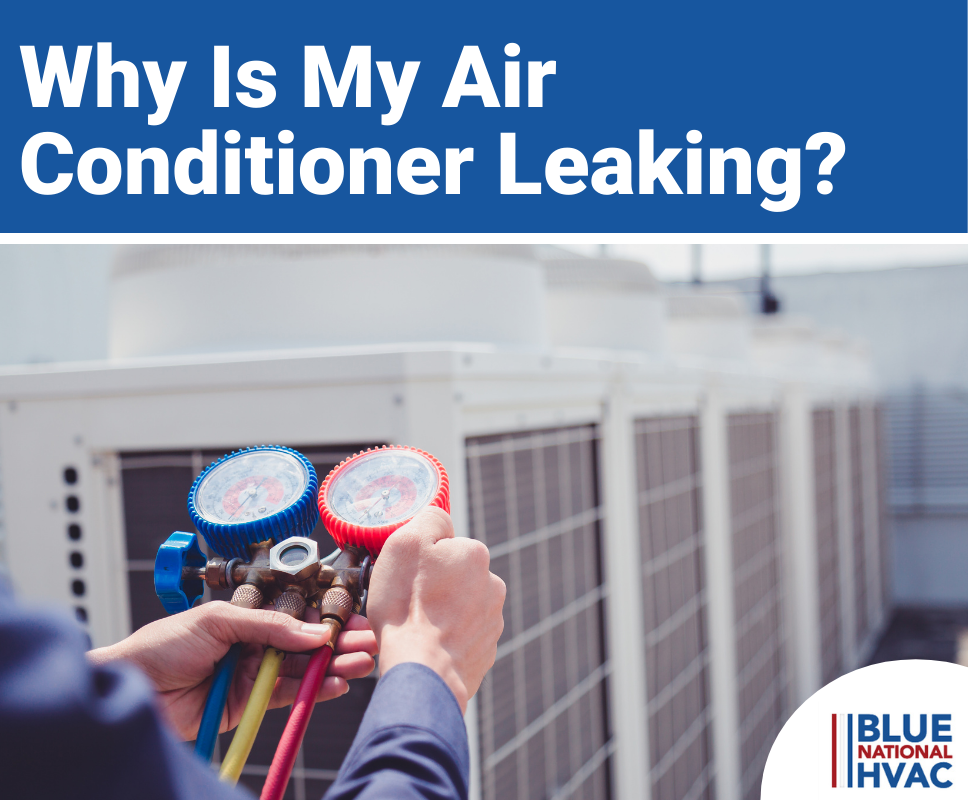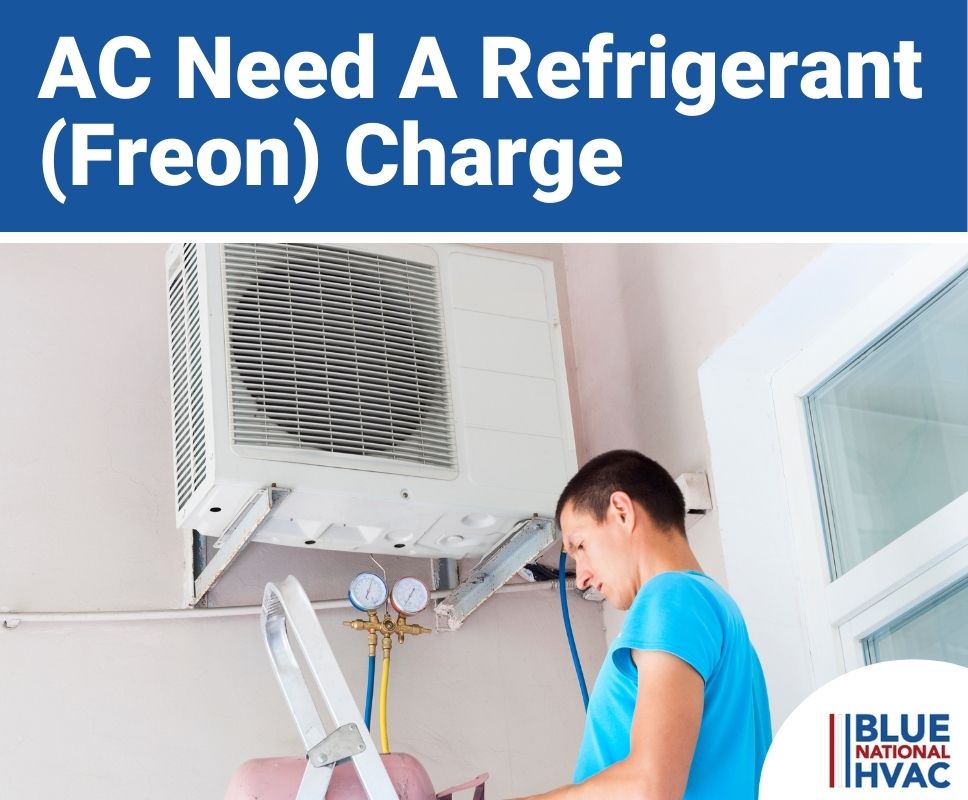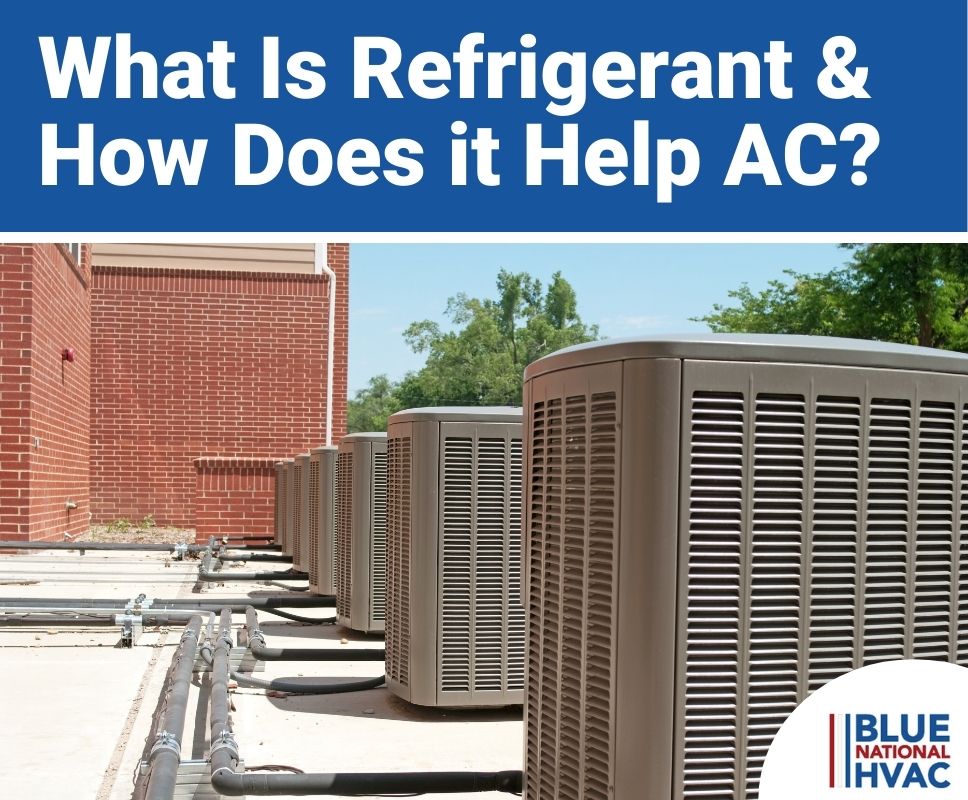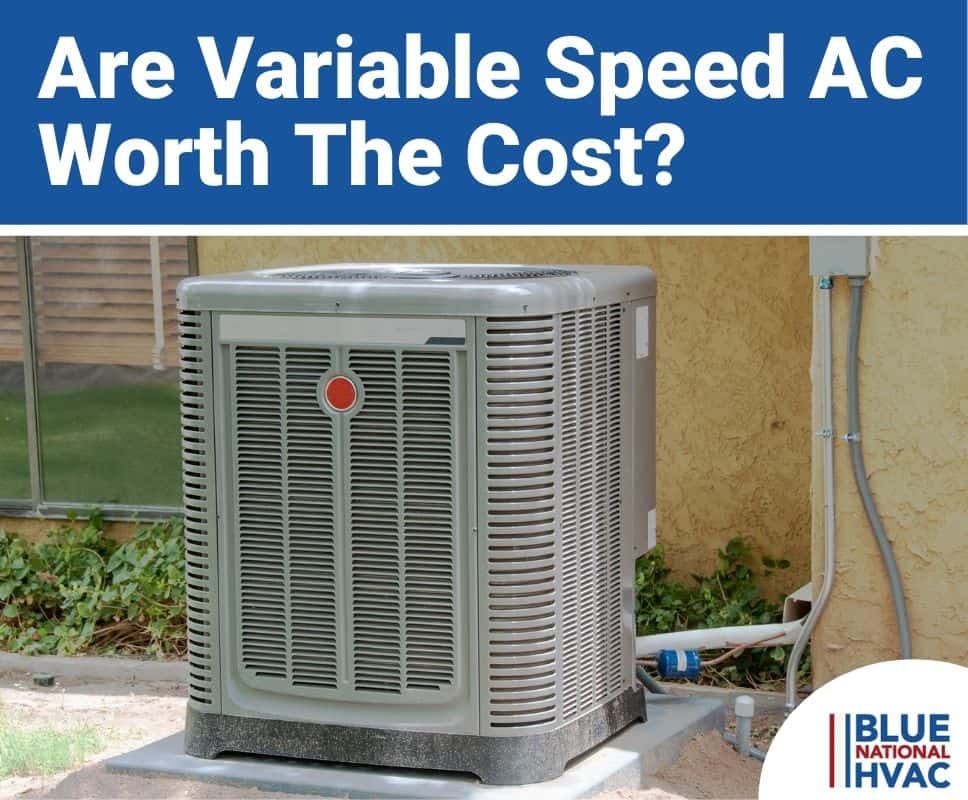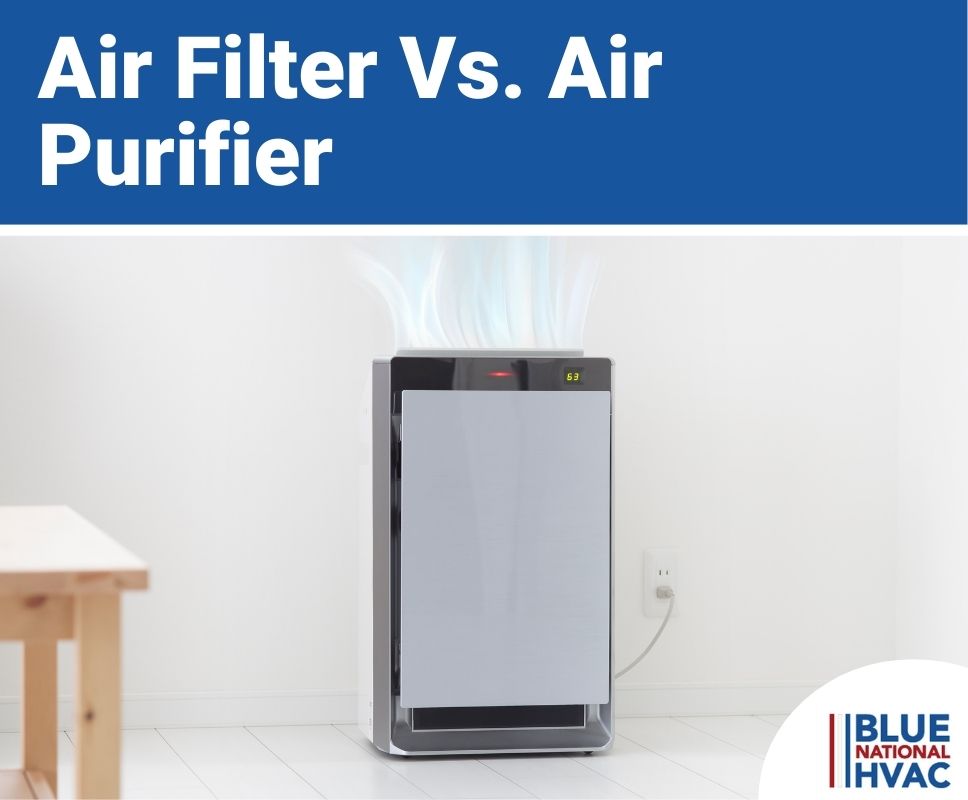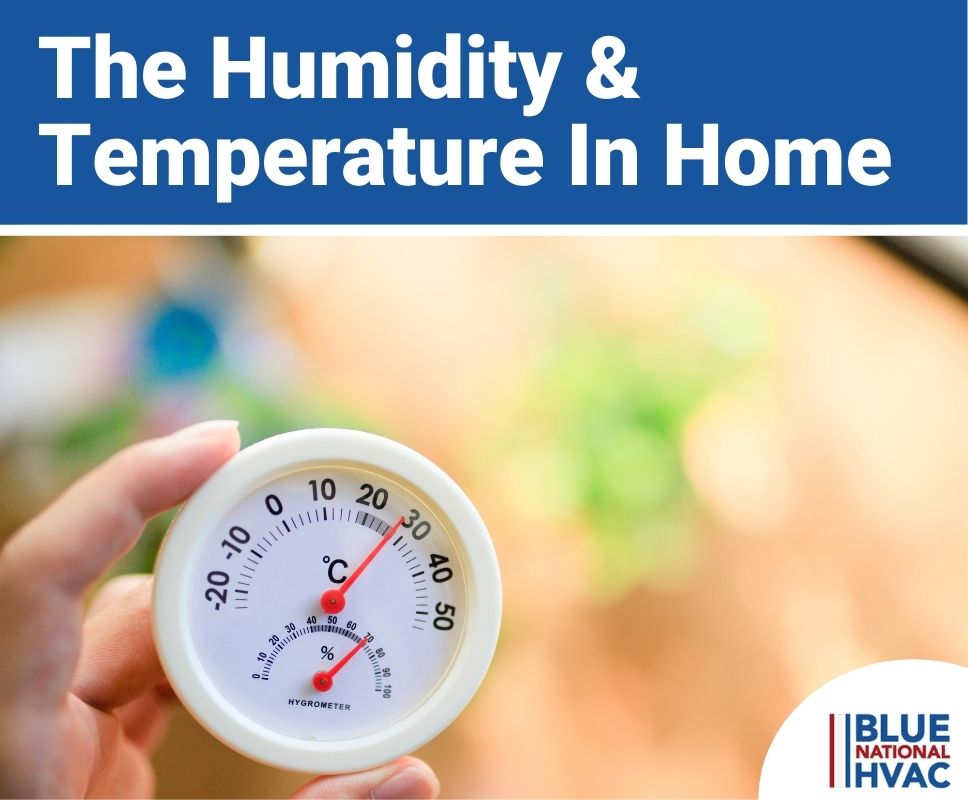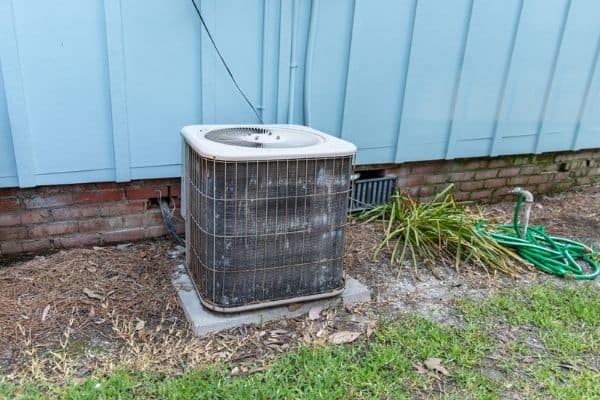What Causes An Air Conditioner To Leak Water?
Air conditioners are designed to remove heat from the indoor air and pump it into your home through the vapor-compression refrigeration cycle. Besides cooling the air in your home, the air conditioner also removes humidity from the air, through condensation.
The excess moisture is removed from the air and condenses on the evaporator coils in your air handler (or indoor unit). The water drains, typically through the condensate drain pan down the drain line, leading outdoors or directly into a sump pit. It usually flows naturally from gravity.
However, if the water has to be moved to a higher elevation, a condensate pump is used.
In central air conditioning systems and air-source heat pumps, the evaporator coils and condensate drain pan are located in the “indoor unit,” also known as the “air handler.” The air handler is typically installed in the basement or attic of the home but is sometimes located in a utility closet in single-story dwellings.
Window AC units and ductless mini-split systems contain their evaporator coils directly on the unit mounted on your wall or window. They drain through their condensate lines directly through the wall or window.
Because of this, if things go wrong with components involved in the humidity removal process, the AC unit can leak water into your home. Here are the most common causes why this happens.
Clogged AC Drain Line
The most common reason air conditioners will leak water is because of a clogged condensate drain line. Condensate drain lines, sometimes called AC drain lines, are PVC pipes that can get clogged with algae, mildew, and sediment buildup.
When the drain line gets clogged, the water can overflow in the drain pan and leak into your home. A clogged drain line needs to be cleared to prevent water from spilling into your home and causes water damage to your walls, ceiling, and floor.
A condensate drain line can be cleared with a shop vacuum, pipe cleaner, garden hose, or a water/vinegar mixture. If you suspect a clogged drain line, call our HVAC technicians for help today or check out our DIY guide on how to clear the AC drain line yourself!
Rusted Condensate Drain Pan
The drain pan is the component that collects the condensed water that drips off the evaporator coils. It is a wide pan that is 1.5 to 3 inches deep and located directly underneath the coils. The pan is slightly angled toward the middle where the drain is situated and is typically made of stainless or aluminum.
When the water enters the drain, it is fed by gravity down to the drain, where it enters the condensate drain line.
Over long periods, the metal of the drain pan can rust enough that holes can form. The condensed water can leak into your home through these rusted holes instead of down the drain pipe.
If your drain pan is rusted out, the best solution is to replace it entirely. A qualified HVAC repair specialist should replace the drain pan to ensure proper installation and no subsequent leakage.
Frozen Evaporator Coils
Evaporator coils in the air handling unit can become frozen over will ice if they are not properly maintained. A dirty, clogged air filter can prevent proper airflow in your air conditioning unit.
When the airflow is reduced, the air around the evaporator coils will get cold, and the moisture that condenses out of the air will freeze on the coils. Before you know it, the coils can freeze over entirely.
Refrigerant leaks can also cause frozen coils. If there is a pinhole leak on the coil, the refrigerant – under high pressure – will escape out of the hole and rapidly lose pressure. When it loses pressure, it’s temperature will decrease quickly and freeze any water on the condensing coils.
Lastly, and less commonly, a broken fan that prevents proper airflow or a faulty thermostat that causes the HVAC system to run continuously can also cause frozen coils.
When all the ice melts from the coils, it can cause the condensate drain to back up and spill over into your house.
Frozen coils should be inspected by an HVAC professional, especially since the cause could be a refrigerant leak. Refrigerant inspection, recharging, and repair can only be completed by EPA-certified HVAC professionals. So if you’re concerned about a possible leak, contact our certified pros today for air conditioning services!
Failed Condensate Pump
A failed condensate pump is yet another air conditioner component that can fail and cause leaks into your home. The condensate pump moves water that condenses in the drain pan outside your home or into a sump pit in your basement.
Sometimes, condensate pumps aren’t needed on air conditioners at all. For example, if the indoor unit (and drain pan) are in the home’s attic, gravity is enough to force the water to drain out of the house naturally.
Conversely, if the indoor unit is installed in the basement and you want condensation to drain outside (above elevation), you’ll need a condensate pump to move the water “uphill.”
After years of use, a condensate pump may break down and cause the drain pan to overflow and leak water in your home. When the pump fails in this way, it should be replaced immediately to prevent any damage.
How Do I Stop My Air Conditioner From Leaking?
Besides turning off the air conditioner, there are a few DIY steps a homeowner can take to stop their unit from leaking. They involve ensuring the system is getting proper airflow and removing clogs in the AC drain line.
Clean Or Replace The Air Filter
One of the first things a homeowner should check if their air conditioner is leaking water is their air filter. If it’s dirty and disposable, replace it with a new one. If it is a reusable filter, go ahead and clean it. (Check out our air conditioner cleaning guide for additional details.)
If replacing or cleaning the filter does not stop your air conditioner from leaking, check the coils and the AC drain line.
Clean The Evaporator Coils
If the AC filter has not been cleaned in a while, the dirt, dust, and grime from the clogged filter can end up on your evaporator coils, blocking airflow.
If the airflow is blocked, water that condenses on the dirty coils can collect and freeze, then leak into the house. To clean the coils, turn the air conditioner off and use a vacuum, brush, foaming coil cleaner, or a combination of these methods to clean them.
Clear the AC Drain Line
The most common reason an air conditioner leaks water is due to the drain line being clogged. Clearing the drain line can be accomplished by most homeowners by following our AC drain line guide.
However, if you feel like you’re in over your head, give our HVAC experts a call for help!
Can You Use Your AC If It’s Leaking Water?
Whether or not you should use your air conditioner if it’s leaking water depends on the cause of the leak. If the air conditioner has a refrigerant leak, preventing proper heat removal and is the cause of the excess water, then the AC unit should be left off until it’s assessed by a professional.
When an air conditioner has low refrigerant levels, it will have lots of trouble reaching the setpoint on your thermostat. It could then run for hours, stressing the compressor and other components of the AC system.
If a clogged drain pipe is the culprit, the AC unit can be used. However, depending on the amount of water, you will want to collect it with a bucket or some other solution to prevent damage to your home until the drain line is cleared.
Why Do Air Conditioners Produce Water?
Air conditioners don’t produce water. Instead, they remove it from the unconditioned air. Hot air holds more humidity than cold air, and when the air conditioner removes heat from the air, moisture (in the form of water) condenses from a gaseous state to a liquid state on the evaporator coils.
Should You Call An AC Specialist?
Is your air conditioner leaking water, and you can’t determine why? If you’ve looked through the essential DIY troubleshooting tips and still cannot get your AC unit to stop leaking water, you need to call an HVAC specialist for an AC repair.
Fixing the leak right away will prevent unnecessary water damage to your home and additional damage to your AC unit. If you need assistance from an HVAC professional, give our crew a call today!
What Will An AC Specialist Check?
When our EPA-certified HVAC technicians are on the hunt for reasons why your air conditioning unit is leaking water, they will check the following:
- AC filter
- Evaporator coils
- Refrigerant lines
- Refrigerant levels
- Condensate drain line
- Condensate pan
- Condensate pump
- Ductwork
After they determine the problem, they’ll offer some solutions and help you determine the best option for your unique needs.

